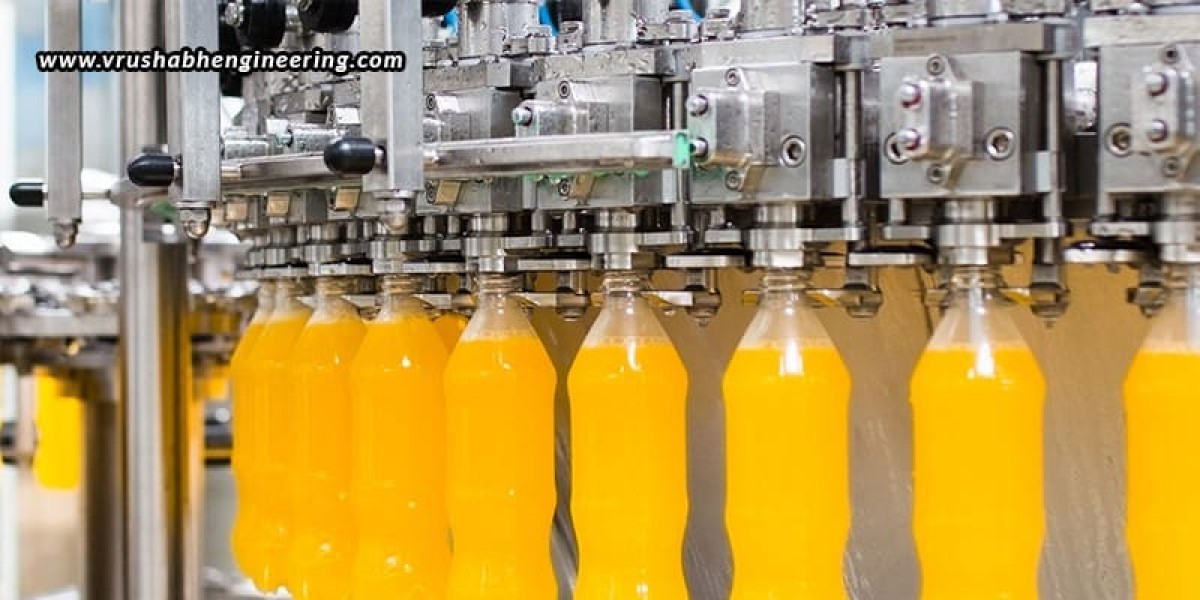Food-grade gaskets are essential behind-the-scenes in the food and beverage (F&B) business, where safety and sanitation are of the utmost importance. These specialty gaskets need to be able to tolerate harsh cleaning agents, high temperatures, and pressure changes while still sealing consistently. They are crucial for avoiding contamination and facilitating clean-in-place (CIP) operations since they are made to adhere to stringent hygiene norms. The materials, specifications, and performance requirements for gaskets in F&B processing settings are examined in this blog.
The critical role of gaskets in F&B processing
In addition to sealing components, gaskets in food processing facilities also maintain hygienic boundaries to guarantee that no outside contamination enters the food stream and stop fluid, gas, and steam leaks between pipe joints, flanges, and equipment parts. In crucial procedures like cooking, pasteurization, or refrigeration, these gaskets maintain temperature and pressure stability. They also facilitate cleanability by avoiding residue accumulation that can harbour bacteria. Food-grade gaskets play an essential function, therefore it’s important to choose, install, and maintain them carefully to fulfil performance and hygienic standards.
Common applications in F&B plants
Heat exchangers, pumps, valves, pipe joints, flanges, storage tanks, filling and packing machines, homogenizers, and pasteurizers are just a few of the parts of a processing facility that need food-grade gaskets. Every one of these uses has different requirements, such as exposure to chemicals, high pressure, or temperature, and calls for gaskets made to meet those demands.
Clean-In-Place (CIP) systems and gasket compatibility
Clean-in-Place systems are automated techniques that clean equipment, pipes, and vessels’ internal surfaces without disassembling them. Gaskets in such systems must –
- Preserve seal integrity in the face of chemical and heat degradation
- Be able to withstand frequent exposure to steam, hot water, caustic soda, and acidic sanitizers.
- Have smooth, non-absorbent surfaces to help stop the growth of biofilms.
Since silicone and EPDM are flexible under temperature changes and have a great resistance to cleaning solvents, they are usually chosen in CIP systems. Although PTFE’s stiffness necessitates precise compression control, its inertness makes it compatible with rigorous cleaning regimes.
Key materials used in food-grade gaskets
Choosing the right material is crucial, as each has different properties suited to particular applications. Here are the most widely used gasket materials in food and beverage applications:
- Silicone: Inert and non-toxic, silicone gaskets have remarkable flexibility and compressibility, as well as exceptional temperature resistance between -60°C and +230°C. These characteristics make them perfect for uses like fillers, steam processing lines, and bake ovens that involve temperature changes or flexible closures. Clean-in-place (CIP) seals and bottle cappers also make extensive use of them.
- EPDM: EPDM is less expensive than silicone and offers exceptional resistance to steam, water, and alkaline CIP chemicals. It also has remarkable elasticity and UV resistance. It is frequently utilized in pumps, valves, and piping systems that need to be cleaned frequently and is a workhorse material in the beverage production industry, especially in the dairy, brewing, and soft drink processing industries.
- PTFE: PTFE gaskets are prized for their broad temperature tolerance, superior chemical resistance, and non-stick qualities. They are perfect for sealing in the production of acid-based condiments or oil processing, and they are particularly well-suited for procedures involving harsh chemicals or oils.
- Nitrile Rubber: NBR gaskets have moderate temperature resistance and good oil and fat resistance at a reasonable price. Because of these qualities, they are frequently utilized in systems for managing animal fat, oil bottling, and meat processing.
- FKM: FKM gaskets are renowned for their extended service life under difficult circumstances, great chemical and heat resistance, and capacity to tolerate potent CIP chemicals. Usually, they are employed in high-end food and beverage systems, particularly in those where regular procedures involve the use of strong sterilant or high-pressure steam cleaning.
Gasket design considerations for food applications
The success of a gasket depends not only on the material, but also on its fit and design. Important design elements that can impact machine performance include:
- Smooth surfaces and a flushed fit: Gaskets should be flush with adjacent surfaces and not protrude into product channels to avoid food entrapment and microbiological growth.
- Compression and rebound: Consistent compression should be provided by the material without irreversible deformation. Even after several CIP cycles, long-term sealing is guaranteed by a strong rebound.
- Colour coding: Certain businesses utilize color-coded gaskets, usually white or blue, to make visual inspection and foreign matter detection simpler.
- Ease of installation and replacement: To save downtime and prevent contamination hazards from deteriorated seals, food-grade gaskets should be simple to replace during periodic maintenance.
Maintenance and monitoring
Frequent maintenance is essential to prevent gasket failure and possible contamination. In order to prevent unexpected failures, it is best to regularly check for indications of swelling, cracking, discoloration, or compression set; follow the manufacturer’s recommended replacement schedules; and maintain thorough records of gasket usage and cleaning cycles in order to spot failure patterns and schedule preventative replacements.
Partnering with a trusted gasket supplier
The proficiency of the provider is just as important to the efficacy of any food-grade gasket as the material and design. The top gasket suppliers are aware of industry-specific processing challenges, material compatibility with CIP/SIP protocols, food safety laws in various regions, and the ability to customize designs for unique equipment. A seasoned supplier guarantees long-term performance, compliance, and hygiene. With decades of experience and technical know-how, Vrushabh Engineering is a reputable brand in precision sealing solutions for the food and beverage industry. As a reputed industrial gaskets manufacturer in India, they are reliable partners for hygienic processing settings because of their dedication to quality, regulatory compliance, and bespoke gasket solutions.
Despite their small size, gaskets are crucial to maintaining safety, hygienic conditions, and regulatory compliance in the food and beverage processing industry. Modern food-grade gaskets have developed with sophisticated materials and clever designs in response to the rising demands for sustainability, CIP compatibility, and allergen control. Selecting the right gasket – and the right supplier – helps safeguard your products, protect your brand, and maintain a clean and effective operation.







